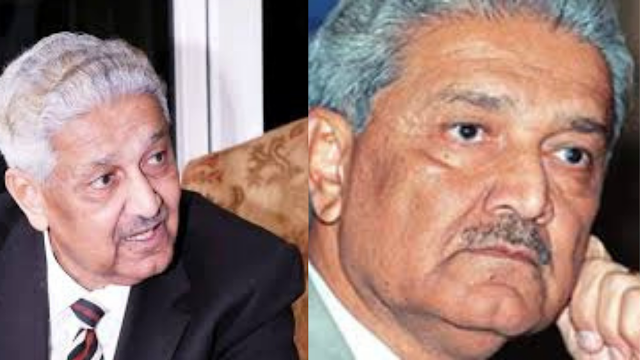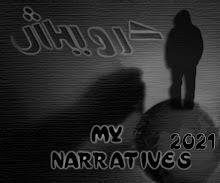Dr. AQ Khan: 'Father Of Pak Bomb'
In spite of the fact that Dr. Abdul Qadeer Khan is presently recognized as the one who without any help made Pakistan a nuclear power, but the reality of the matter is more complex.
Dr. Abdul Qadeer Khan, who passed on in Islamabad on Sunday 10th October 2021 due to COVID at the age of 85, was respected in Pakistan as the "father" of the country's "nuclear bomb". Infamous legend, he is praised as the one who without any help guaranteed that Pakistan prevailed into making atomic weapons, and in this huge regard, made Pakistan an equivalent of India.
The worldwide disgrace he brought Pakistan for running a rebel atomic organization and multiplying for individual benefit didn't imprint his height by any means. All things being equal, the one who was born in Bhopal in 1936, and whose family relocated to Pakistan during Partition, was viewed as a loyalist, the survivor of a worldwide trick to deny Pakistan of its atomic gems, and to slander the country.
Qadeer Khan's country regarded him with the titles of Nishan-e-Imtiaz (Order of Excellence, Pakistan's most elevated regular citizen honor) and Mohsin-e-Pakistan (Benefactor of Pakistan).
Yet, his partners at the Pakistan Atomic Energy Commission laughed at his atomic certifications his primary capability was as a metallurgical specialist and he was purportedly not the head of the group that tried Pakistan's atomic gadget in May 1998 after India completed its tests in Pokharan, despite the fact that he was available at the test site in Chagai. What everybody recognizes, however, is his part in giving the principal blueprints to Pakistan's axes, showing it the way to uranium enrichment.
Stealer Of Atomic Secrets
In February 2004, months after America defied General Pervez Musharraf, Pakistan's then-military ruler with proof that Khan had been selling portions of axes and material to Libya, North Korea, and Iran, Musharraf had to make a move. In a speech to the country, he decried Khan in coarse language.
Following this, Khan made a confession on public TV and considered it an "error of judgment" on his part. Adjusting between assessment at home and extraordinary global Scrutiny, Musharraf exonerated him however positioned him under house capture. On the Pakistani road, in any case, Khan was a hero. His photos were in shops and commercial centers, and his face was painted on the backs of trucks, cars, and autos.
Pakistan was stunned, however, Khan had been under western insight observation nearly from the beginning of his atomic innovation career.
In 1975, a year after India ignited its first atomic device, Khan, then, at that point, working in Holland in a uranium enhancement office as a German-Dutch interpreter, offered his administrations to then PM Zulfikar Ali Bhutto, who needed Pakistan to have its own atomic program.
The Dutch family associated him with taking diagrams for making axes and different parts, however, he got back to Pakistan before any move could be made against him. In 1976, he joined Pakistan Atomic Energy Commission's atomic weapons exertion. He was sentenced by a Dutch court for the burglary.
Previously in 2001, Khan had been constrained by Pervez Musharraf to retire and give the reassurance title of Chief Advisor to the head of Khan Research Laboratories. Musharraf made this stride due to doubt about his activities.
From that point on, it was downhill for Khan. For sure, he had embodied Pakistan's atomic weapons exertion from 1981 onwards, when General Zia-ul Haq, the then military ruler, renamed Engineering Research Laboratories after Khan. He was a more public personality than any of Pakistan's other atomic researchers.
The 'Secret' Pak Bomb
It was Khan who outed that Pakistan had an atomic gadget over 10 years before its retaliatory test in 1998. In 1987, he told the veteran Indian columnist Kuldip Nayar in a meeting: "America knows it. What the CIA has been saying about our having the bomb is right, as is the theory of some foreign papers. They let us know Pakistan would never create the bomb and they questioned my abilities. Yet, they realize we have it."
Nayar asked him for what valid reason Pakistan had not reported this accomplishment. Khan answered: "Is it essential? America has taken steps to remove its entire guide."
It was viewed as a conscious break by Pakistan, as a message to Delhi, serving to hurry India's own atomic weapons program.
Recovery After Musharraf
After President Musharraf ventured down in August 2008, Khan requested Islamabad High Court for his release. The new PPP government had effectively gone under colossal strain to release him. In 2009, the court announced him a "free resident," yet solely after it had handled a "secret understanding" among him and the government. The court banned either side from disclosing the details.
The subtleties of the arrangement were contained in a US political link spilled by Wikileaks in 2011. Under the arrangement, Khan had consented to various conditions, including not going out from Islamabad without informing the authorities, not voyaging abroad, and submitting names of guests to his home for confirmation.
As per the cable, then, at that point, Interior Secretary Kamal Shah had guaranteed the US Ambassador that the public authority of Pakistan held all forces to keep him on a tight leash. Shah safeguarded the court request by saying it had given the public authority “legitimate cover” for an "extrajudicial" house capture.
Not long after turning into a "free resident" however, Khan held an extemporaneous question and answer session outside his home in Islamabad's E-7 area. He later took to composing a column in the Pakistani Daily “The News”. In 2012, he additionally attempted to coast an ideological group named Tehreek-e-Tahaffuz-e-Pakistan, which, notwithstanding his own notoriety, sank without a follow quite soon.
The Last Years
In 2019, Khan moved a crucial rights appeal in the Supreme Court of Pakistan against the limitations on his free travel the nation over. During hearings recently, counsel for Khan whined that he was not being permitted to meet his family members and companions.
The court requested the public authority to get a rundown from individuals Khan needed to meet and to determine the matter. The appointed authority depicted Khan as the "Mohsin (supporter) of Pakistan", and said he should very well care.
The case was all the while being heard when Khan contracted COVID. He was moved to the military hospital in Rawalpindi, from where he was released subsequent to recuperating from the infection. He passed on promptly after complications in his lungs.







No comments:
Post a Comment